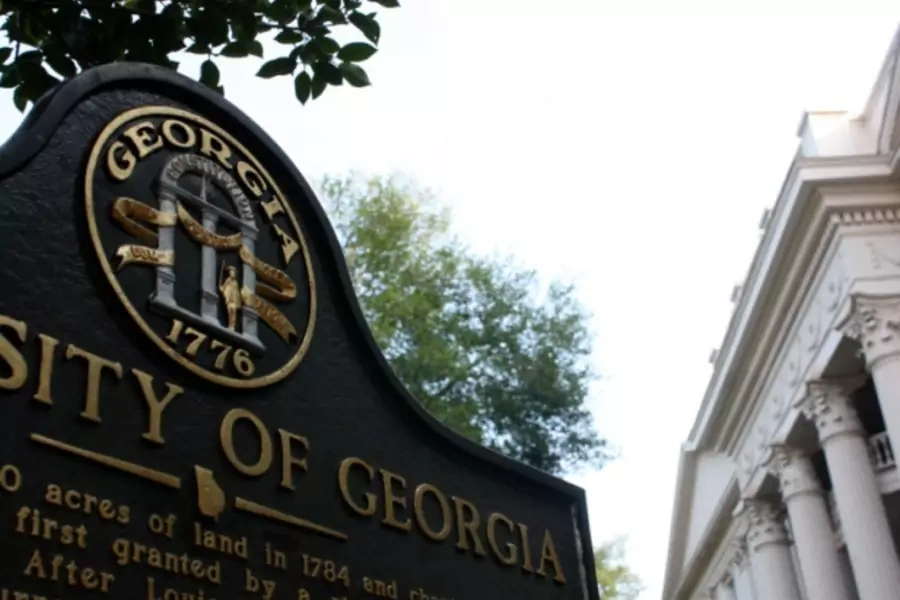Policy Initiative Spotlight: Some HOPE for College Tuition

More on:
Having yet to take a finance or economics course, most high-school juniors and seniors could be forgiven for an ignorance of the principle of “return-on-investment” (ROI). However, the concept could scarcely be more practical as many young people prepare to make one of the most important investments of their lives. Decisions over where to go to college, how much to spend, and whether to take on debt will almost certainly influence their economic futures for decades to come.
And the stakes have never been higher. Over the last two decades, college tuition has increased at 20 times the rate of an average graduate's wages. A typical student at a four-year public school can now expect to finish with about $28,000 in debt—a financial burden that, for many, will hinder their ability to purchase a home as a young adult.
Meanwhile, pursuing higher education has never been more essential to success. For the past thirty years, virtually all job growth for people over 25 has occurred in positions that require some post-secondary education, according to the Bureau of Labor Statistics. By 2020, roughly two-thirds of all U.S. jobs will demand education past high school.
So, if you're hunting for ROI, where do you look? Well, a recent report from Smart Money has a surprising answer: the state of Georgia. In a survey of the 50 top-priced schools, the magazine ranked Georgia Tech and the University of Georgia first and fourth, respectively in return-on-investment. The study calculated ROI by measuring the median income for recent grads (3 years out) and mid-career alumni (15 years out) as a percentage of tuition costs.
While this is obviously great news if you're a Yellow Jacket or Bulldog, it doesn't tell the full story because the survey does not account for in-state tuition or for financial aid. Only by including these two factors, particularly the latter, can one understand just how good college students in the Peach State have it. Most U.S. students can receive substantially discounted tuition at their state's public universities, but few states sweeten the deal as much as Georgia.
Celebrating its twentieth anniversary next year, Georgia's HOPE scholarship, which is funded through the state lottery, pays close to 90 percent of public university tuition costs for resident students who earn at least a 3.0 GPA in high school and maintain this level of achievement during college. Nearly 75 percent of the students attending Georgia technical schools receive HOPE (or Helping Outstanding Pupils Educationally) scholarships, and the number is about one-third for schools within the University of Georgia system. HOPE scholars can also use the award to pay for a fraction of tuition costs at private school in the state, like Emory.
With this type of largesse, it should come as no surprise that Georgia ranks number one in grant dollars per population and grant dollars per undergrad enrollment, according to the National Association of State Student Grant and Aid Programs. Since its inception, HOPE has kept about 75 percent of Georgia students who score 1400 or above on the SAT in state for college, compared with less than a quarter before the program. HOPE's widely-acknowledged success has inspired similar lottery-funded, merit-based scholarships in other states such as Tennessee, Florida, and West Virginia.
But the program also has its critics. Many argue that because there is no income eligibility cap, the great majority of HOPE scholars don’t actually need the aid and would have attended college regardless. Furthermore, others suggest that because the program is lottery-funded, the poor and minority populations end up subsidizing affluent families, whose children tend to win HOPE scholarships at higher rates.
Many Georgia residents fear the window of HOPE, at least in its current form, may be closing. The Georgia lottery, which doled out $748.1 million in awards for 2010-2011 (compared with $21.4 million in 1993-1994), has been unable to keep pace with ballooning tuition and enrollment rates. Indeed, state lawmakers were forced to reduce HOPE's award in 2011, and official projections indicate that further, significant reductions (or other sources of funding) will likely be needed in the very near future. The ROI for many future Georgia college students may not be quite so peachy.
More on:
 Online Store
Online Store